Praise for Take Charge Now!
Comprehensively covers many deadly aspects of blamingblaming oneself, other people, and external conditions. Shows its readers how to use Rational Emotive Behavior Therapy (REBT) to reduce all aspects of blaming and does so in an exceptionally clear, readable, and charming manner.
Albert Ellis, Ph.D., President, Albert Ellis Institute for Rational Emotive Behavior Therapy
Blaming is a pernicious habit. When we blame other and find fault with them, we tend to replace good feelings with resentment and pain. When we blame ourselves, we feel depressed and guilty. Dr. Knaus provides a clear path away from faultfinding and condemnation to a tolerant, assertive, and fulfilling modus vivendi. He provides a lucid prescription for achieving quality relationships. This is an important book and I heartily recommend it!
Arnold A. Lazarus, Ph.D., Distinguished Professor Emeritus of Psychology, Rutgers University
Brilliantly done. Dr. Knaus shows how to ditch blame and improve your life and relationships. Destined to be a classic.
Susan Tapper, Professor, Health Education, San Francisco State University
Bill Knauss bookTake Charge Now! Powerful Techniques for Breaking the Blame Habitis a real winner. Our culture has become filled with blamers. Thinking that all negative events are awful and that we cant stand them, we look for someone to blame. Of course, that doesnt really help us very much. Bill Knaus teaches us about the dimensions of blame and how to get out of the blame trap. Most importantly, he gives concrete and realistic suggestions to overcome blame, increase our skill to deal with adversity, and live a more fulfilling life. This easy-to-read book is filled with practical suggestions. Although I would not blame you if you dont read it, I strongly recommend this book.
Howard Kassinove, Ph.D., Professor and Chairperson, Department of Psychology, Hofstra University
Once again, Dr. Bill Knaus accurately targets an often ignored, prevasively harmful human habit. This innovative book skillfully offers readers the tools for beating blame in their lives. I would not blame anyone for reading this timely self-help book!
Diane R. Richman, Ph.D., Psychologist
How often do we buy a book for its alluring title, and it spends its life gathering dust on the office shelf? Now here is a book whose content is worthy of its title. Man was condemned with the curse of blame, as obviously someone has to be at fault! Dr. Knaus challenges that assumption by showing the origin, effect, and antidote to this destructive process. Use this book to put blame to rest, and maybe you will get some, too.
John J. Shannon, Ed.D., ABPP
Also by William J. Knaus
Change Your Life Now: Powerful Techniques for Positive Change
Do It Now! Break the Procrastination Habit
 Take Charge
Take Charge
Now!
Powerful Techniques for
Breaking the Blame Habit
Dr. William J. Knaus

Copyright 2000 by William J. Knaus. All rights reserved.
Published by John Wiley & Sons, Inc.
Published simultaneously in Canada
No part of this publication may be reproduced, stored in a retrieval system or transmitted in any form or by any means, electronic, mechanical, photocopying, recording, scanning or otherwise, except as permitted under Sections 107 or 108 of the 1976 United States Copyright Act, without either the prior written permission of the Publisher, or authorization through payment of the appropriate per-copy fee to the Copyright Clearance Center, 222 Rosewood Drive, Danvers, MA 01923, (978) 750-8400, fax (978) 750-4744. Requests to the Publisher for permission should be addressed to the Permissions Department, John Wiley & Sons, Inc., 605 Third Avenue, New York, NY 10158-0012, (212) 850-6011, fax (212) 850-6008, E-Mail: .
This publication is designed to provide accurate and authoritative information in regard to the subject matter covered. It is sold with the understanding that the publisher is not engaged in rendering professional services. If professional advice or other expert assistance is required, the services of a competent professional person should be sought.
Library of Congress Cataloging-in-Publication Data
Knaus, William J.
Take charge now! : powerful techniques for breaking the blame habit / by William J. Knaus.
p. cm.
Includes bibliographical references.
ISBN 0-471-32563-5 (paper)
1. Interpersonal conflict. 2. Blame. I. Title.
BF637.I48 K63 2000
158.1dc21
99-054874
10 9 8 7 6 5 4 3 2 1
Contents
Preface
Youve picked the right book if you want to arm yourself to overcome the unnecessary miseries of blame. It amply provides many different ways for managing and getting beyond blame. In this book well look at ways to deal with self-blame, blaming others, blamers, and, to some extent, blame conditions. Well look carefully at common blame traps that cause more harm than good. Managing these areas effectively provides a realistic hope for good relationships.
Blame is the most common source of human tension. No one is exempt! Even when blame does not rise to a level of notable stress and strain, the blame process frequently but subtly will influence what we think and what we do. At the extreme, blame works at the core of negative human interactions. It ties together inhibitions, impulses, and negative emotional states, such as anxiety, depression, and hostility. Practically every dysfunctional family blames far more than their functional counterparts, who also frequently blame to excess. People commit suicide to avoid blame and shame. The beat goes on!
Take Charge Now! provides a powerful resource for understanding the legitimate forms of blame and how to get beyond the harmful types. I wrote this book to help my readers meet this challenge and to find blame-free zones in their lives where they can feel more satisfaction and accomplishment. To this end, this book can help readers overcome the stresses that relate to blame, adopt positive ways of asserting positions and interests without blame, and establish solid relationships based on understanding, trust, and tolerance.
To help achieve these objectives, I divided the book into three parts. In part I well examine information that can boost your awareness of the complexities of blame and of how to use this understanding to promote positive change. In part II well examine blames role in primary relationships and ways to change the blame script when the results have a curdling effect. Finally, in part III well look at powerful change processes to permanently get beyond the stresses and strains of unnecessary blame.
Introduction
Blame, a highly contagious process, weaves through life like strands of hemp through a rope. We currently live in a blame culture, where finger-pointing, bickering, fault-finding, criticism, and condemnation commonly influence what we think, feel, and do. When something goes wrong, the first thing many of us hear is Who is to blame?
Blame is such a constant presence in our everyday life that we take it for granted. Indeed, within westernized cultures, blame is pervasive.
We may not have a blame gene, but our species definitely has an aptitude for blame. After working with thousands of clients struggling to deal with critical life issues and talking to countless people from different walks of life, I found that practically everyone had highly unpleasant blame experiences to relate. Their blame stories came from such events as past recollections, current relationships, or conflicts with a boss or neighbor. Some seethed while recalling a badgering parent criticizing them. People complained about feeling surrounded by blamers with a fault-finding knack. Some highly critical people showed tunnel vision and went into denial over whether their blaming ways contributed to the conflicts that they confronted daily.


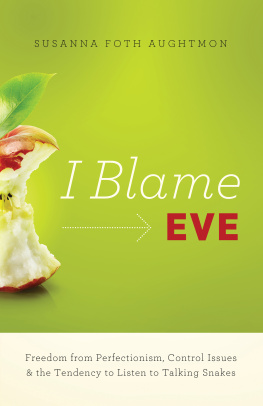
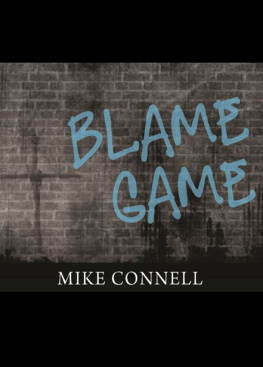
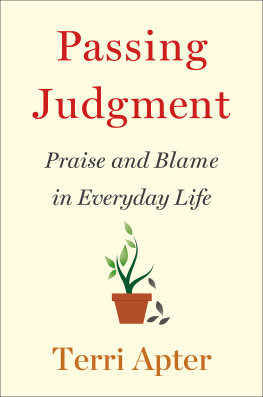

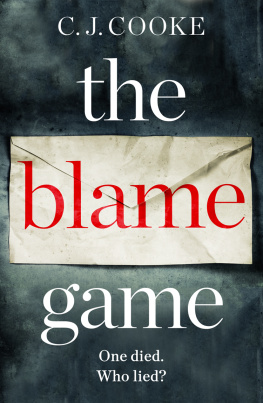
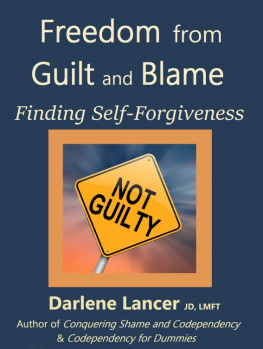
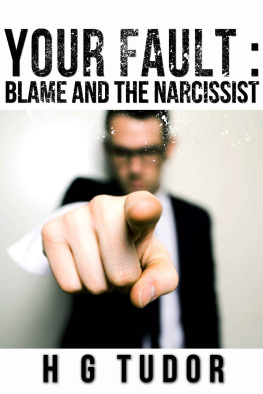
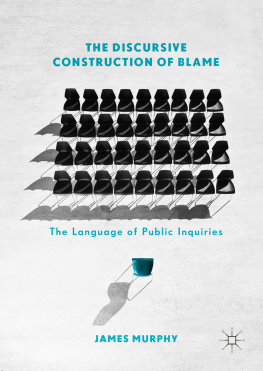
 Take Charge
Take Charge